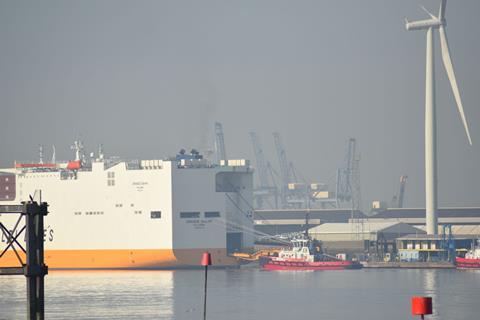Member states of the International Maritime Organization (IMO), meeting at the Marine Environment Protection Committee (MEPC 80), adopted the revised strategy to reduce greenhouse gas (GHG) emissions from international shipping.

The 2023 IMO Strategy on Reduction of GHG Emissions from Ships enhanced targets to tackle harmful emissions, including a goal to reach net-zero GHG emissions from international shipping close to 2050, a commitment to ensure an uptake of alternative zero and near-zero GHG fuels by 2030, as well as checkpoints for 2030 and 2040.
IMO secretary general Kitack Lim said: “The adoption of the 2023 IMO Greenhouse Gas Strategy is a monumental development for IMO and opens a new chapter towards maritime decarbonisation. At the same time, it is not the end goal, it is in many ways a starting point for the work that needs to intensify even more over the years and decades ahead of us. However, with the revised strategy that you have now agreed on, we have a clear direction, a common vision, and ambitious targets to guide us to deliver what the world expects from us.”
The indicative check points to reach net-zero GHG emissions from international shipping include: a reduction of the total GHG emissions from international shipping by at least 20 percent (striving for 30 percent) by 2030 compared to 2008 levels; and a reduction of at least 70 percent (striving for 80 percent) by 2040, compared to 2008 levels.
Commenting on the adoption of the revised strategy, the World Shipping Council said that there is a now a clear timeline for the development of the lifecycle-based global fuel standard and economic instrument, to be agreed by 2025 and ready for implementation in 2027.
John Butler, president and ceo of the WSC, said: “This marks a new beginning for shipping’s energy transition, with clear goals and milestones. There is much to do, and carriers are eager to continue the work together with regulators, fuel providers and technology providers to reach our shared climate targets.
“Liner shipping is already investing in renewable fuel-ready ships, and [the] decision broadcasts a strong global signal for investment to the entire maritime sector. We are counting on the IMO member nations to press on with the important work of developing and adopting a robust regulatory framework that will make these fuels available and competitive. The next two years will be critical – for 2050 targets to be achievable IMO member nations must develop and agree on a lifecycle-based global fuel standard and economic measure by 2025, so they can be implemented by 2027.”
















